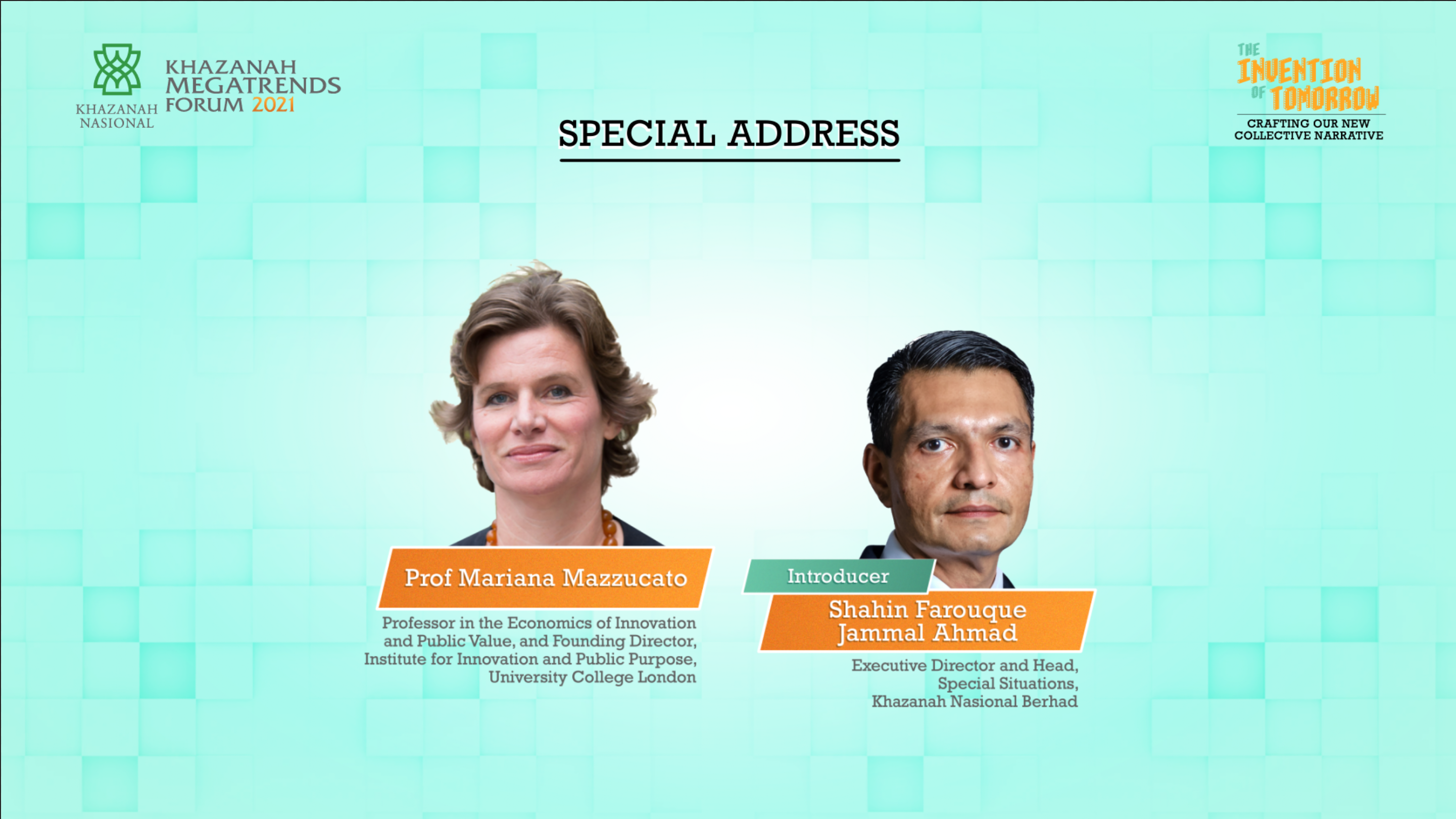Session Summary
Markets are outcomes of how institutions are governed.
The heterogeneity of market across sectors means agency matters.
Public institutions, for example, through regulatory ecosystem and procurement, shape how various actors in a market behave.
The dominant philosophy of governments as merely the fixer of market failures limits their potential role.
This philosophy has over time eroded the capabilities of the public sector to shape markets. Meanwhile, the private sector has been focusing on short-term profits and maximising shareholder’s value rather than reinvesting in technology.
Public sector capabilities are important.
Value is not only created by businesses. Dynamic and capable public sector can co-create markets together with the private sector that is set to tackle grand challenges such as the Sustainable Development Goals.
The journey to the moon provides valuable lessons of how moonshots can be achieved and how goals ought to be framed as concrete missions.
It is important to have a long-term vision.
While the challenges ahead may be immense, the long-term benefits may well outweigh both short-term and long-term costs.
Learning by doing and taking risks will build capacity and foster innovation.
Outsourcing may be more cost-efficient but learning by doing and taking risks create inspiration for others to also pour in high-quality investments for the long term.
Working together and driving partnerships thoughtfully is key.
Involving various sectors creates many positive spillovers, as many major inventions are a result of the moonshot mission. The thoughtful design of partnerships, such as placing conditions, ensures that value is co-created and that entities are oriented towards a common goal and do not work in silos.
It is high time to renew our social contract and rethink capitalism.
No single entity can work on its own in tackling grand challenges.
A renewed social contract towards building systems that distribute value equitably across various segments of society requires bringing various stakeholders in the co-creation and decision-making processes.
Technological change is an outcome of problem solving.
Technological change is not devoid of value. We can steer technological change to tackle imminent global challenges and redistribute value equitably by putting public purpose at the core.
There are different ways to govern capitalism to generate public value.
The obsession with quick return to investment hurts innovation. Our approach to investment should also be mission-oriented, for example, by shifting investment to “pick the willing” instead of to “pick the winners”.
